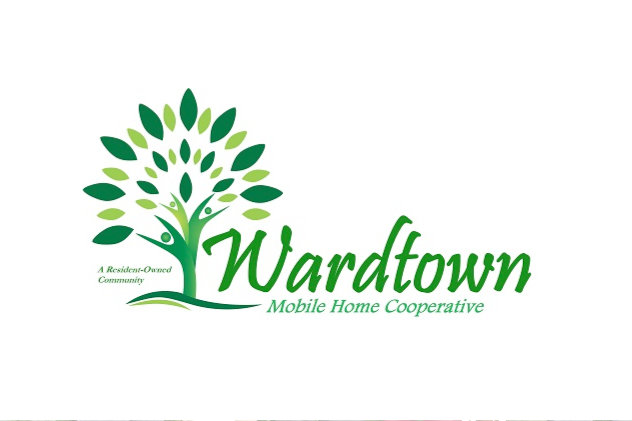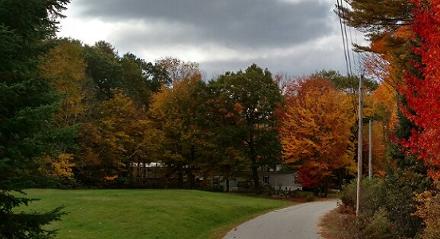Wardtown ROC
When Bill Hodgkins talks about the journey towards cooperation and where it has taken his community, his eyes light up. “For our community, it was an important journey in understanding the physical and governance needs of a manufactured home park. We had to go about changing the culture of the park and the way we relate to one another.”
Hodgkins is the treasurer of Wardtown Mobile Home Co-op, a Resident-Owned Community, or ROC, in Freeport. Despite being home to 60 families, there was always a fear that developers interested in Freeport – one of Maine’s wealthiest communities with high real estate values – would like very much to get their hands on the property. The residents in Wardtown voted to form the cooperative and purchase the community in 2015, with assistance from Cooperative Development Institute, and combined financing from Maine State Housing and Maine’s Genesis Community Loan Fund.
Wardtown is one of more than 192 manufactured home parks in the country that have converted to resident ownership. The basic concept of a ROC is simple. When a park is up for sale, residents come together and form a cooperative, which after a period of research and due diligence, secures a single or combined mortgage and purchases the park. Each household in the park can purchase one, limited equity share (typically $100-$500) in the corporation and in turn has one vote for major decisions in the community. One of those major decisions is to elect a Board of Directors who oversees the day-to-day affairs. Members must also be residents of the park. The shareholders also vote on major decisions, like an annual budget that covers the mortgage and maintenance and sets the monthly lot rent.
This model allows the residents to control how the park is managed and lot rent is based on expenses and can be kept low if the park is managed well and residents engage in volunteer efforts. If there is a surplus, members can choose for themselves whether to allocate it to an important community project or roll the surplus into a reserve account for future repairs.
As Hodgkins explained, “We all gained valuable new skill sets as we went through the process of establishing and financing our cooperative. There were some maintenance issues that, had we not identified them early on, we would have been in real financial trouble right now. Now we have a very strong board of directors and feel very organized, to the point we are able to assist other ROC manufactured home parks with advice about the process.”
Now Wardtown MHP Cooperative is turning to community development projects that improve quality of life. “We are planning on converting our street lights to solar, getting rid of a useless road to turn it into community space and expanding the community gardens,” said Hodgkins, as he described what was next for Wardtown MHP Cooperative.
For Wardtown’s residents, a future of cooperative ownership means that they have security. Their goal is affordability and investment in quality of infrastructure and quality of life, not to generate a profit for an outside investor. They also know a developer can’t buy the park and displace their homes.
There have been many benefits to becoming a resident owned cooperative but the most pronounced outcome has been the level of community integration and camaraderie among residents that has resulted from the process of residents working together. On this point, Hodgkins noted, “People are just looking after one another in ways that never happened before. It is really wonderful.”


